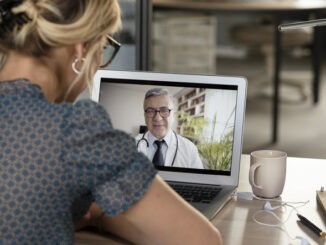
As reported by The Telegraph, GPs are refusing to book appointments for patients who walk in to surgeries, blaming new NHS rules
A health service plan, published in May, was supposed to speed up access to family doctors, ending an “8am scramble” that meant patients struggled to get through for an appointment and were often told to
The instructions say patients must be told on the day how their request will be handled, with appointments allocated within two weeks and urgent cases receiving appointments within 24 hours.
But some practices say the volume of cases they need to consider and prioritise means they now cannot make any bookings on the spot.
As a result, they are asking patients who walk in to make an appointment to fill in forms setting out the request. They are then told to wait up to a day to find out when they have been allocated a slot.
On Saturday, health officials insisted that the same day policy contained in the delivery plan for recovering access to primary care aimed to ensure that patients are seen more quickly.
The plan promised to tackle the 8am rush and “consign to history patients being asked to call back on another day for an appointment”, adding: “While this is the right thing to do for patients, we recognise it will be a major change for some practices.”
NHS England said the instructions were not intended to mean that patients who walk in cannot book a slot.
But the Royal College of GPs said the “immense pressures” on practices meant it was understandable that some were not able to offer on-the-spot booking.
Patients at one large practice in the Home Counties have been told that because of changes “directed by NHS England” they can no longer expect to walk in and book an appointment.
Instead they are told to fill in a form, “which will be triaged by a doctor within one working day”.
Prof Kamila Hawthorne, who chairs the Royal College of GPs, said: “Practices will always try their best to follow NHSE guidelines – as they did with the switch to remote consultations during the pandemic – and are working hard to ensure all clinically urgent patients are assessed on the same day.
“Given the immense pressures on general practice, practices are having to manage appointment booking carefully in order to achieve this, which in some cases may mean asking patients to fill out a form so that they can be appropriately triaged rather than offering on-the-spot appointment booking.
“We share our patients’ frustrations when they have difficulty in accessing care, but GP teams are working our hardest to deliver safe, timely and appropriate care – there just simply are not enough of us to meet demand that is growing in both volume and complexity.
“We are delivering millions more appointments compared to pre-pandemic, with almost half offered on the day of booking, but we are doing this with 930 fewer GPs compared to 2019.”
Dennis Reed, of Silver Voices, a campaign group for the elderly, said: “I have been hearing of this happening increasingly over the last few months and I really think GPs need to think again, in particular because refusing to make bookings on the spot discriminates against the elderly.
“Many older people prefer to just walk in and speak to the receptionist to make their appointment. The systems being introduced are often very confusing, whether it’s a form or going online. I think a lot of GP practices are basically trying to push everyone to go online, and that can be very difficult for some elderly patients.
“There was a lot of talk about how these measures would bring an end to the 8am queues, but I see no signs at all of that diminishing. For many people, it just feels impossible to get an appointment.”
Dr Hawthorne said she hoped the announcement of an NHS long-term workforce plan earlier this month would “bring some hope” given its promises to train more GPs. But she said there was an urgent need to take steps to stop experienced GPs leaving or taking early retirement.
An NHS spokesman said: “More GP appointments are happening on the same day than before the pandemic, even as practices are seeing and treating record numbers of people.
“All patients attending a GP practice should get a decision on how their request will be managed on the day, with clinically urgent requests assessed and seen first, and those people with a less urgent request seen within two weeks.”


Be the first to comment